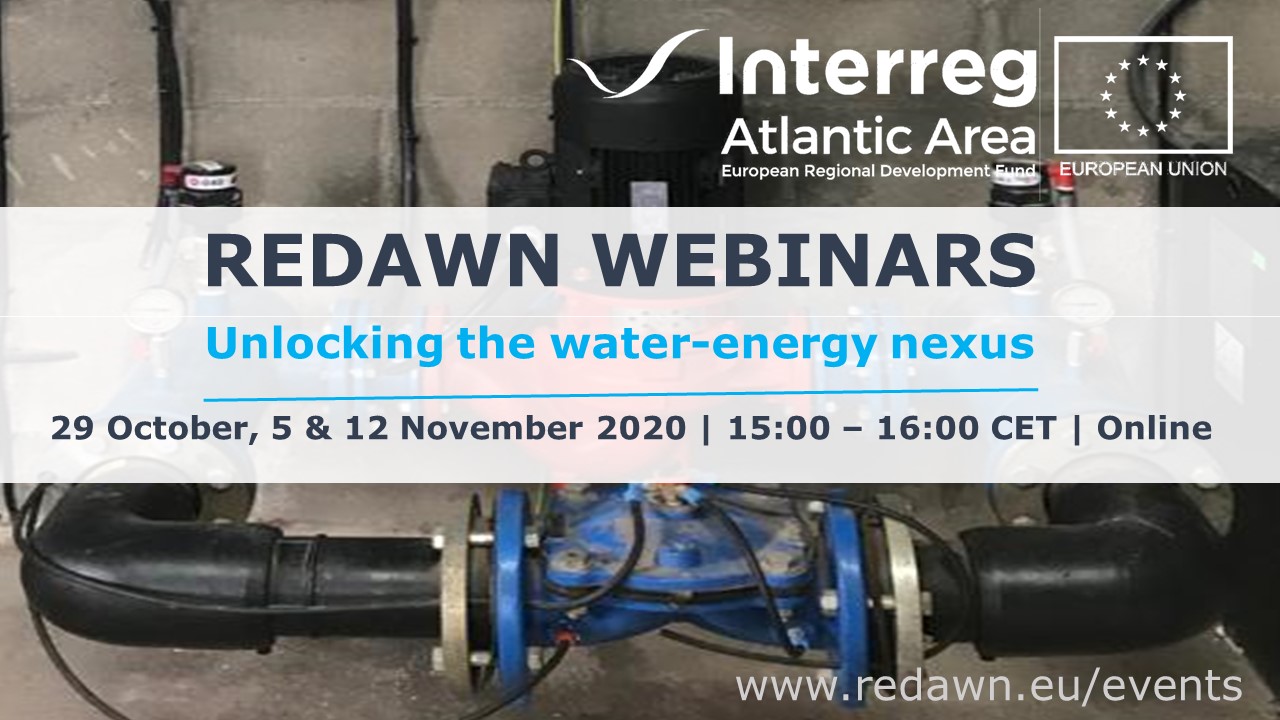
REDAWN webinar 1: Saving energy in water networks: https://youtu.be/9JQNqN5d_YM Our first event focused on the state of the art in water networks and highlighted the energy saving potential in such systems. We also covered the concepts and applications of the latest technology in Pump-as-Turbines (PATs) and briefly presented a database tool for selecting PATs. The session was led by Dr Kemi Adeyeye (WATEF network, University of Bath) and featured: - Opportunities for energy recovery with the latest PAT technology (Prof Armando Carravetta, UNINA) - Energy recovery potential in on-demand irrigation networks (Miguel Crespo Chacon, Trinity College Dublin) REDAWN Webinar 2: Micro hydropower in water networks – technical, institutional, policy case studies: https://youtu.be/s1Z_O-OvjF4 Our second event used existing case studies and demonstration plants to review the potential benefits of recovering energy in water networks and the social, institutional, and political challenges to implementing this in the EU. The session was led by Dr Aonghus McNabola (Trinity College Dublin) and featured: - Energy recovery in drinking water networks: learnings from our French pilot site (Yves Cabaret, SMPGA) - Barriers and opportunities: The EU institutional, policy and social context (Dawn Murphy, Action Renewables) REDAWN Webinar 3: Energy recovery potential, economic, social and environmental impacts: https://youtu.be/pzLaZLoo8xw Our third event demonstrated the substantial potential for micro-hydropower (MHP) in the EU Atlantic Area water industry to generate clean energy and contribute to improving the sustainability of the EU’s water sector. Using a series of case studies in water distribution and irrigation networks, the significant economic and environmental benefits of MHP use was explored. The session was led by Helena Ramos (Instituto Superior Técnico, Portugal) and featured: - MHP energy recovery potential in water distribution networks in the EU Atlantic Area. (Aida Mérida Garcia (Córdoba, Spain) - Economic and environmental benefits of the micro hydraulic plants in water networks. (Indalecio González Fernández, University of Oviedo, Spain)

